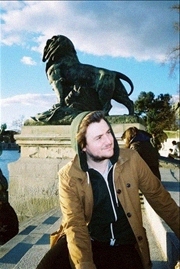Tutor HuntResources English Resources
Excerpt From My Undergraduate Dissertation
For my undergraduate dissertation,I discussed exclusivity in The Great Gatsby
Date : 04/10/2013
Author Information

Uploaded by : Jacob
Uploaded on : 04/10/2013
Subject : English
I will construct an image of the way in which the forms and techniques used by Fitzgerald in The Great Gatsby denote exclusivity, and to what extent they are mirrored in both Manhattan Transfer and Tales of the Jazz Age, specifically focusing on the effect that technology, wealth and the voice as a literary tool, signify exclusivity. I will also seek to explore whether or not 'the world's second metropolis', New York, had any bearing on the division between characters. Fitzgerald writes in The Great Gatsby; 'gradually I became aware of the old island here that flowered once for Dutch sailor's eyes - a fresh green breast of the new world.' Through the narrator, Nick Carraway, he is recognising the beauty and the wonder of a great-undiscovered land, ripe for cultivation and the American Dream, a blank canvas on which to build a new life and reincarnate oneself in one's ideal image. This was Gatsby's intention, from humble beginnings he travelled East to New York city, by way of Europe and the Great War, to set up his new life as part of the nouveau riche on the 'West Egg, the - well, less fashionable of the two [Eggs].' The relationship between Nick Carraway and the eponymous Jay Gatsby is at the heart of the novel as the narrative unfolds through the voice of Nick, his observations of Gatsby and the way in which he is at the 'center [sic] of all things' - to borrow a phrase from Manhattan Transfer - and yet at the same time, inherently excluded. Nick's house on West Egg is testament to the fact that he is more of a spectator than a protagonist as the Jazz Age - which was, according to Fitzgerald, an ' age of miracles, it was an age of Art, it was an age of excess and it was an age of satire,' - unfolded before him (Nick). His house is 'at the very tip of the egg, only fifty yards from the Sound, and squeezed between two huge places that rented for twelve or fifteen thousand a season.' In contrast to Nick's house, the house to the right 'was a colossal affair by any standard - it was a factual imitation of some Hôtel de Ville in Normandy, with a tower on one side, spanking new under a thin beard of raw ivy, and a marble swimming pool and more than forty acres of lawn and garden.' The stark contrast between Nick's 'eyesore' and Gatsby's flamboyant mansion immediately creates a division between the pair. Fitzgerald implores the reader to recognise that both Gatsby and Nick, though seemingly at the heart of the excessive parties and frivolity throughout the novel, are in fact still inferior to the 'old money' of the Buchanan's. Again this reiterates the exclusivity found within Fitzgerald's novel, even though Gatsby is able to rise through the social classes, there is still an intangible force present that prevents him from being with Daisy.
This resource was uploaded by: Jacob
